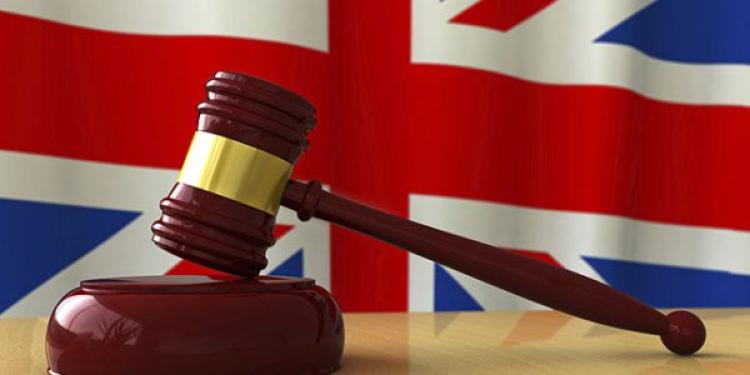2 Major Changes Caused by New UK Gambling Laws and 2 Things That Have Stayed the Same
Posted: June 9, 2014
Updated: October 4, 2017

2014 has been a crucial year for the British gambling industry with the introduction of new regulations and taxes. Some things have changed drastically. Others, not so much.
2014 has been a big year for Britain’s massive gambling industry. Britons love to gamble, and for the most part the government prefers to regulate rather than prohibit the activity. But new regulations have been introduced this year that have changed the way casinos, bingo halls, betting shops and online sportsbooks in the UK do business. This piece will take a look at a few things which have changed along with some that will stay the same.
The new budget is hurting betting shops
George Osborne’s new budget included raising the tax on fixed-odds betting terminals (FOBTs) from 20 to 25 percent. Given the negative image that these quid-guzzling machines (often dubbed the “crack cocaine of gambling” in the media) have in the public eye, few voters complained.
• Both the 2014 Gambling Bill and the new budget have led to significant changes for the British gambling industry
• While hundreds of betting shops are set to close due to a tax increase on FOBTs, new regulations limiting new shop openings will protect Ladbrokes and William Hill from competition
• The tax on bingo halls was halved to 10 percent, preventing additional closures and layoffs for the company
But High Street betting shops and their employees have been hit hard by the tax hike. These brick-and-mortar betting establishments depend on FOBTs to turn a profit now that most wagering has moved online.
And while most associate the term “betting shop” with massive international bookies like William Hill and Ladbrokes, a large portion of the country’s 7,000 shops are small family-owned establishments. The Association of British Bookmakers (ABB) also claims that it is the only industry in the country which pays more in taxes than it makes in profits.
Betting shops were hurting before the tax hike, and things have only gotten worse. 400 small shops have closed since the beginning of 2013 and the ABB claims that more than 2,000 are on the brink of bankruptcy. William Hill recently announced that it will close 109 shops in 2014, causing more than 400 employees to lose their jobs.
Devolving powers to local councils is helping some bookies and hurting others
The new gambling bill also gave local councils more influence over regulating the number of bookmakers which can legally operate within their jurisdiction. Many politicians, individuals and concerned citizens groups feel that part of the reason for gambling addiction in Britain is that there are simply too many betting shops.
While a recent survey found that 52 percent of Britons want to see fewer betting shops in their neighborhoods, statistics show that their number has not risen in a decade and is only about half what it was during the 1970s. It looks like the opposition is due to effective agitation by anti-gambling groups, not actual growth in the betting shop industry.
For that reason, many councils have decided to prevent additional shops from opening. In a perverse way this is good for established firms like Ladbrokes and William Hill. They stand to face less competition from upstarts like Paddy Power. In fact, Paddy Power has been the most vocal in opposition to the change.
While the two High Street mainstays took tumbles at the London Stock Exchange when the tax on FOBTs was announced, stock prices recovered somewhat on announcement of the new regulation. It looks like they will actually benefit from something intended to limit their growth.
New licensing rules are not scaring away offshore gambling sites
New British gambling laws include a regulation requiring offshore gambling sites operating in the country to go through the same licensing procedures as domestic sites. Last year many commentators speculated that such a law would create a shortage of licensed bookies and online casinos and push customers into the black market.
So far, such gloomy predictions haven’t been borne out by actual results. Offshore bookies, many of which operate in Gibraltar, Malta and the Isle of Man, are lining up in droves to obtain UK licenses. Sure, they aren’t thrilled about the change, but maintaining access to one of the world’s most lucrative markets is well worth it.
Bingo is staying right where it is
This is something that the new budget ensured won’t change. Bingo has long been one of Britain’s most popular past-times. While millions of people still play, increasing numbers of them do it with online casinos in the UK rather than bingo halls.
The drop in demand has forced hundreds of bingo halls to go belly-up over the past several years, leading to thousands of thousands of job losses. Given the fact that bingo is more socially acceptable than other forms of gambling (and perhaps the current government wants to score brownie points with elderly voters) Osborne’s budget included halving the tax on bingo hall revenue from 20 to 10 percent.
That is even lower than the 15 percent hoped for by industry leaders. Upon the announcement shares in the Rank Group, Britain’s largest provider of bingo, rose by 7 percent. The company said that the cut will allow it to scrap plans to close several of its 97 locations. Other bingo halls have also pledged to keep shops open and employees on the payroll.
The move won’t prevent the industry from gradually shrinking as online bingo grows in popularity, but it will slow the decline. Bingo looks here to stay, at least for the time being.











